Best Supporting Actress 1938: Getting to know the nominees
 Saturday, September 5, 2020 at 11:20AM
Saturday, September 5, 2020 at 11:20AM The Supporting Actress Smackdown of 1938 is approaching. Unlike more recent years, when the nominees are well-known personalities to all of us, it's understandable that contemporary audiences might not be too familiar with these actresses from the 30s. Considering that, here's a little primer on each of the five women, their careers, their filmographies, and their legacies. They make up an exceedingly impressive lineup that includes Broadway stars, an opera sensation, and some of the most reliable character actresses of Hollywood's Golden Age…
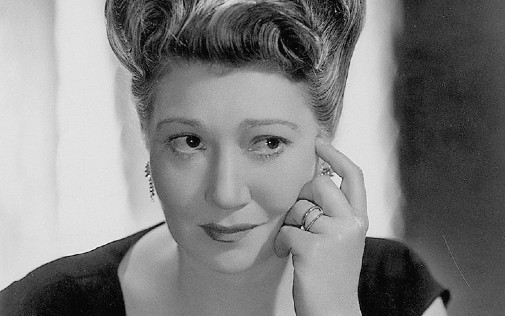
FAY BAINTER (1893-1968)
Before she ever appeared in front of movie cameras, Fay Bainter was a diva of the stage. She started working very early when she was only six and became part of a traveling show. By the age of eighteen, the young performer was making her Broadway debut, though her first few plays were notorious failures. Bainter only got the recognition she deserved in middle-age, but her theatrical legacy is astounding nonetheless, encompassing famous roles like Mary Tyrone and Fran Dodsworth, which she originated.
In 1934, Bainter appeared alongside Lionel Barrymore in This Side of Heaven, her first moving picture. Following that screen adventure, she became a regular presence in American cinemas. In 1938, a singularly great year for Bainter, she became the first performer to score a double nomination on the same Oscar season. She won the Supporting trophy for her turn as Aunt Belle in William Wyler's Jezebel. Her co-star on that movie, Bette Davis, conquered the Best Actress award, defeating Bainter's heartfelt portrayal of regretful motherhood in White Banners.
Unlike some of her fellow 1938 Best Supporting Actress contenders, Fay Bainter never abandoned the stage, though she continued to do movies into the 60s while also taking her chances on the small screen. With her sad eyes and smoky voice full of honey, Bainter was always an arresting presence. She could tell tragic tales of woe with a single look and make a modest line-reading ring with hidden depths.
Essential Viewing: Make Way for Tomorrow (1937), Jezebel (1938), White Banners (1938), State Fair (1945), The Children's Hour (1961).
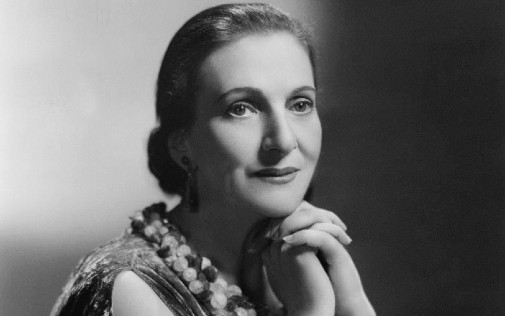
BEULAH BONDI (1889-1981)
Beulah Bondi's stage debut happened at the tender age of nine when she played the title role of Little Lord Fauntleroy at the Opera House her father managed. Her road to stage success was a long and twisted one but, by the late 20s, Bondi was a working Broadway actress. In 1929, she got her big break playing one of the many dispossessed characters in Elmer Rice's Street Scene. The role would represent a major turning point for the actress.
When King Vidor brought the hit play to the big screen, Bondi reprised her part and made her film debut in an impactful fashion. She enters the movie picking at her wedgie and proceeds to chew the scenery with remarkable aplomb, all while showing a keen eye towards naturalistic detail. In no time, Bondi would find a secure place in Hollywood as a character actress, often playing saintly mothers and other such figures. Along the way, she even got to enjoy some bigger parts. If you want to get your heart broken, check out her miraculous work in Make Way for Tomorrow.
Despite her type-casting as many darling mothers (she was Jimmy Stewart's mum five times!) and devoted wives, Bondi never married or had any children. Instead, she built a formidable career that netted her two Oscar nominations, a star on the Hollywood Walk of Fame, and an Emmy win. Beulah Bondi died in 1981, after injuring herself by tripping over her cat. She was 91 and left behind a filmography many would kill for.
Essential Viewing: Street Scene (1931), Make Way for Tomorrow (1937), Vivacious Lady (1938), Penny Serenade (1941), It's a Wonderful Life (1946)
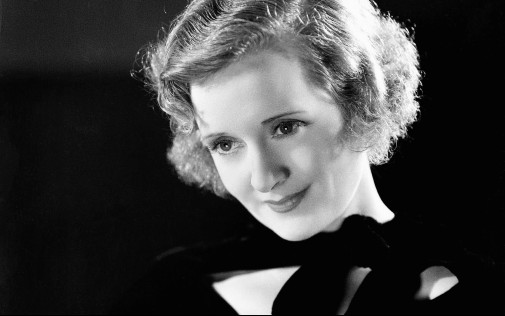
BILLIE BURKE (1884-1970)
Before she got her first and only Oscar nomination, Billie Burke had already been a character in a Best Picture winner. 1936's The Great Ziegfeld featured Myrna Loy playing Burke during her time as a Ziegfeld's wife. Not that Loy tried to replicate Burke's trilling voice or her flighty screen presence. To do so would have been a fool's errand on Loy's part, for Billie Burke was truly one-of-a-kind, inimitable, iconic.
Daughter to a famous clown with royal blood and a place on P.T. Barnum's circus show, Billie Burke was destined for show business. After some stage work, Burke started doing motion pictures when she was 22. Thanks to 1916's Peggy, she briefly became the highest-paid actress in Hollywood History. That blinding stardom wouldn't survive the passage of time and Tinsel Town's well-known ageism towards women, but she was a successful character actress thanks to such hits as the Topper series and The Wizard of Oz, where she famously played Glinda the good witch.
According to Billie Burke, to survive in Hollywood, one needs 'the ambition of a Latin American revolutionary, the ego of a grand opera tenor, and the stamina of a cow pony'. Burke, who worked until she was 75, had it all.
Essential Viewing: Dinner at Eight (1933), Topper (1937), Merrily We Live (1938), The Wizard of Oz (1939), Sergeant Rutledge (1960).
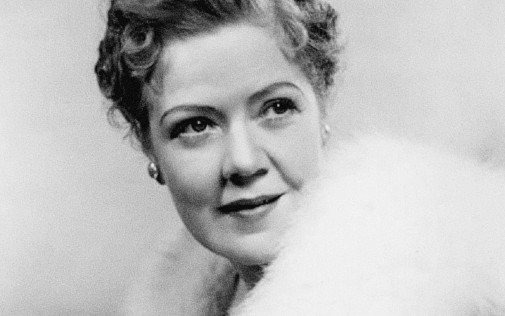
SPRING BYINGTON (1886-1971)
From RKO to MGM, from the 30s to the 60s, Spring Byington was one of Hollywood's most dependable character actresses. She started her career on stage, acting her way through South America performing in Spanish and Portuguese, before heading to Broadway. It was in the New York stage that she grabbed the attention of some Hollywood execs and got the role that would change her life. As Marmee March in 1933's big-screen adaptation of Little Women, Byington was a beacon of motherly warmth and lived-in loveliness, a character-type that would define the actress' career on screen. After such success, Byington never returned to the stage.
While she was often type-cast, Byington was a canny performer, able to lace familial whimsy with an astringent note of sorrow. Even in screwball comedies, she mined humor for aching humanity and showed that her characters' kindness wasn't necessarily effortless. During the war years, she started to act on the radio and, in the 50s, branched out to the small screen too. Thanks to her success in film and TV, she has two stars on the Hollywood Hall of Fame.
Unlike the conservative ideals of maternal subservience she embodied on-screen, Byington was divorced and a working single mother for a good part of her career. She was rumored to have affairs with women, including fellow character actress Marjorie Main. Spring Byington was also a science-fiction aficionado and an amateur aviatrix. Unfortunately, MGM wouldn't allow her to indulge in that flying passion.
Essential Viewing: Little Women (1933), You Can't Take It With You (1938), The Devil and Miss Jones (1941), Presenting Lily Mars (1943), Dragonwyck (1946).
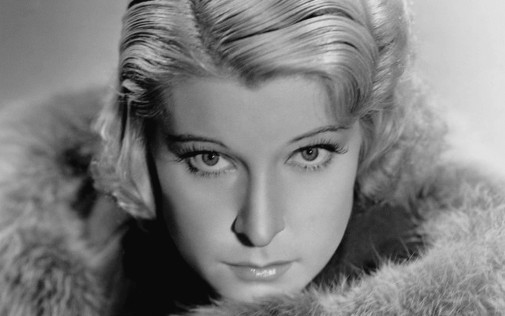
MILIZA KORJUS (1909-1980)
Out of these five actresses, Korjus is the one with the least amount of titles in her filmography. In fact, the Polish performer only ever did three pictures and, in one of them, only her voice made an appearance. Much more than a big-screen starlet, Miliza Korjus was an opera sensation.
Classically trained from an early age, Korjus was part of the Dumka Chorus in Kiev during her teens and toured the Soviet Union with them. Under paternal influence, she went on to tour through Eastern Europe and, after marrying Dr. Kuno Foelsch, she moved to Germany where she found work at the Berlin State Opera. Through recordings of her singing, Miliza Korjus quickly became famous internationally. At a time when Hollywood was investing in making new stars out of opera singers, she captured the attention of Irving Thalberg and got working on her film debut as an actress, The Great Waltz.
For that movie, Korjus got an Oscar nomination and was even invited to sing the Star-Spangled banner at the Academy Awards. Everything was looking up for Korjus as far as cinematic success was concerned, but an unexpected car accident dashed those dreams. With the advent of World War II, she took refuge in Mexico where she would act in her final film, 1942's Caballería del Imperio.
Essential Viewing: The Great Waltz (1938).
Don't forget to watch the films and send in your votes since this is a tight race.



Reader Comments (27)
Why a charming lineup of beloved character actors and the one wild card. Love an awards wild card!
Re: Billie Burke. I recently saw Sergeant Rutledge. How in the world did Burke receive billing above Strode and the Colonel? Her role was very small, and in fact, inconsequential.
I don't know where I've been that I didn't realize that 1938 was the battle of the classic screen character Moms. Minus Miliza you've got the busineswoman Mom (Fay Bainter), versus the long suffering Depression Mom (Beulah Bondi), versus society lady Mom (Billie Burke), versus warm slightly daffy Mom (Spring Byington). Wow. And they played those roles for years. Can't wait for the smackdown.
This is awesome - I knew I recognized some of these actresses but didn't have a lot of background on them.
I was really, really taken with Korjus but expect I might be in the minority on this one. She's such a striking presence, and I wanted more of the movie to be on her weird wavelength of blithe excess.
Does anyone have any good leads on where to see White Banners? It’s one of the hardest to track down Best Actress contenders.
Has an actress ever had a better name than this BEULAH BONDI.
Bravo! This is a great little overview of these five women. Even though they didn't all get exactly the parts that truly showcased their talents in 1938, I enjoyed watching each of them. I agree this one has got to be a tight race and I'm eager to see who will be the ultimate victor. My personal pick is Burke, with Bainter a close second.
While I can't say much for Korjus, I just don't enough about her, I absolutely adore all four of the other ladies that are in the running!!!
I'd be hard pressed to name any of them my favorite over any of the other three, all are so uniquely special.
Those are all great suggestions to familiarize people with their work but I'll add one of their lesser known works that spotlight them either in the lead or from a different angle.
Fay Bainter-The War Against Mrs. Hadley-A rare leading role for her with Edward Arnold pouring on the charm in a bit of a change of pace for him as well. It's a B but a good one and an illustration of the way the studios gave opportunities to their premier character people to sometimes carry films.
Beulah Bondi-The Shepard of the Hills-Beulah throws the sweetness away to play a bitter, vengeful and flat out crazy hillbilly. A little something different for John Wayne as well.
Billie Burke was pretty much typed from the get go by her voice and fluttery movements but she does play a darker aspect of it as the bedridden mother of Bette Davis and Olivia de Havilland in In This Our Life. Frank Langella tells a delightful vignette about working with her on stage early in his career in his book Dropped Names.
Spring Byington-Louisa offers the fabulously named Spring a lead role and the chance to be romanced by both Charles Coburn and Edmund Gwenn. You have to put up with Ronald Reagan "acting" but as well as the above trio you also get Ruth Hussey, Connie Gilchrist and Piper Laurie.
Thanks Claudio! I only knew three of these women. I usually confuse Fay Bainter with Miriam Hopkins, I think they look too much alike. I'd love to know more about golden age perfiormers from you :)
This was a great article to write up and it made me wish that all these classic supporting actors were as discussed as their leading counterparts.
Four of the five nominees' last names start with B. And two of their initials are B.B.! (I notice these things.) Anybody ever notice that 1978's Supporting Actress lineup had three M.S.s: Meryl, Maggie, and Maureen? Any other fun initial coincidences anywhere?
John T, the quality is not amazing but you can watch White Banners in its entirety here: https://ok.ru/video/267363551907
Dave S in Chicago- I agree with you completely on Korjus. She just waltzes away with that movie. It's even more impressive that it's her first movie! She had the confidence of a seasoned pro.
I absolutely love this piece. I love the Smackdowns, but I would enjoy them a lot more if more of the participants besides Nathaniel seemed to care about the historical context of the performances and the performers' careers. Acting styles, audiences, and genres change over time. I do find that many of the actors/writers participating in the Smackdowns (but definitely not all) tend to evaluate the performances based on what they would do in the role or how they would write the role in the present day—if that's your criteria of evaluation, why are you participating in a look at historical styles? (And I'm not just saying that because the 72 Smackdown participants were mean to Shelley Winters. But also...) This piece really helps place these performances and I truly appreciate it.
Richard - I’ll counter with the fact that the Supporting Actress winners from 78-81 were all MS: Maggie Smith, Meryl Streep, Mary Steenburgen, and Maureen Stapleton.
Less fun is that Supporting Actor winners from 09-13 start with Chris.
Richard I thought only I noticed these things. What about Best Actress 1995, where Susan Sarandon was alphabetically the first nominee and 4 of the 5 nominees had last names starring with S.
Loved this article too!
An additional must see for admirers of Miss Beulah Bondi is her Emmy Award-winning work on season 5, episode ten of The Waltons (1976). Bondi plays Martha Corinne, a family relative, who visits and takes an interest in a ramshackle pony cart that teenage son Ben is rebuilding to earn some extra money.
Martha Corinne is over 90. Her heart is ailing. She has limited time left. In the final moments of the episode, the elderly woman has gone for a ride with Ben in the completed pony cart. She asks to stop and pick daisies. As her fatal heart attack hits, Bondi’s face takes on look of great peace and hopeful anticipation to again see her late husband.
A simple, elegant performance that won the Emmy for Outstanding Lead Appearance in a Drama or Comedy Series
Great piece. It's the kind of pieces that the site should focus on.
quick, somebody make a spring byington - marjorie main rom-com before ryan murphy gets his grubby hands on it
Loved this and happy the four veteran character actresses are recognized for their work and your piece shows why they are well respected. As for the newcomer, I wish she had made more films as she is striking.
Still got to watch Boundi and Burke but I'm a strong Fay Bainter voter.
par -- I LOLed at this comment. I had never heard this rumor before but you can bet Murphy would pounce if he thought anyone would be into it.
richard, schmeebs, and steven -- LOVE that you all noticed this and other examples. Because when i was typing up the invite for the panelists i was like "it's all B names!" and I immediately wondered if there were other examples in history
Schmeebs: yes! I forgot about the MS winning streak! That’s the craziest of all!
Schmeebs, Steven, and Nathaniel: My brethren. ✊🏼 I see a column in the making perhaps...?
All I can say about this piece and Claudio is: Nobody does it better.
Random factoid - if you go to Hillwood, the home of Marjorie Merriweather Post (Post cereals heiress, mother of Dina Merrill, owner of Mar-a-lago before the one who shall not be named), in Washington, DC, there are all of these photos of Billie Burke scattered throughout the house. Turns out, they were really good friends. It's a little touch to that house that is so fun.
This was fun, and I, too, never noticed how many times i have seen these ladies in other roles. Good that they got some notice for their work.
Thoroughly enjoyed Miliza Korjus in The Great Waltz (TCM shows it whenever they're in the mood to spotlight Luise Rainer), she brought a totally different energy to the screen and looked like she enjoyed every moment on camera (though I must admit I was confused whether she was playing it as a villain at first but looks like the script wasn't interested in giving her character any payoffs).